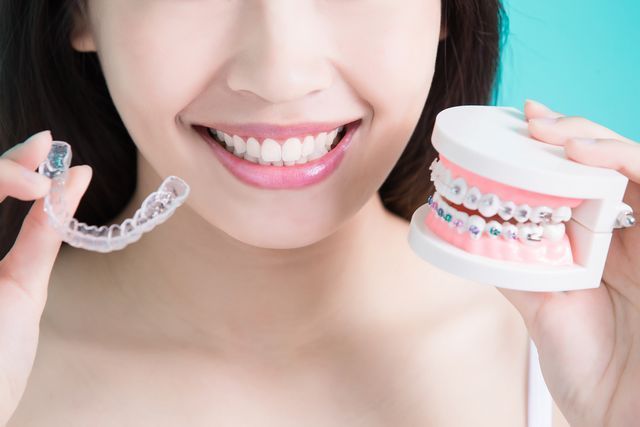Undergoing a dental procedure can be a significant step toward improving oral health, whether it’s a routine cleaning, a filling, or more extensive work like root canals or crowns. While these procedures are essential for maintaining a healthy smile, it’s not uncommon to experience tooth sensitivity afterward. This sensitivity can be uncomfortable and sometimes alarming, especially if you’re not sure what’s causing it or how to manage it effectively.
If you’ve recently visited a dentist in Dubai and are dealing with increased tooth sensitivity, understanding how to handle this issue is crucial for a smooth recovery. This blog offers practical advice and techniques to help you manage and reduce sensitivity after a dental procedure, making your path to optimal oral health as smooth and comfortable as possible.
Understanding Tooth Sensitivity After Dental Procedures
Tooth sensitivity after a dental procedure can arise for several reasons, including:
Exposure of Tooth Enamel: Some procedures might temporarily expose parts of your tooth that are normally protected by enamel. This can lead to increased sensitivity to hot, cold, or sweet stimuli.
Gum Irritation: Dental work can sometimes cause irritation or inflammation in the gums, which can lead to sensitivity in the surrounding teeth.
Dental Restorations: Procedures involving dental restorations, such as fillings or crowns, can sometimes alter the way your teeth interact with one another, leading to temporary sensitivity.
Procedural Trauma: Any procedure that involves drilling or other invasive techniques can cause temporary discomfort and sensitivity as the teeth and surrounding tissues heal.
Understanding these factors can help you manage your sensitivity more effectively and know what to expect during your recovery period.
Immediate Steps to Take
Follow Post-Procedure Instructions: Your dentist in Dubai will provide specific aftercare instructions tailored to the procedure you underwent. Following these instructions is essential for reducing sensitivity and ensuring proper healing. This may include recommendations on what to eat, how to brush, and any medications to take.
Use Desensitizing Toothpaste: Desensitizing toothpaste contains compounds that help block the pathways that lead to tooth nerves, reducing sensitivity. Begin using this type of toothpaste as soon as you start to notice sensitivity, and continue using it regularly to maintain relief.
Avoid Extreme Temperatures: Until your sensitivity subsides, try to avoid very hot or cold foods and drinks. Extreme temperatures can exacerbate sensitivity and make discomfort worse. Opt for lukewarm or room-temperature foods and beverages during your recovery.
Maintain a Gentle Oral Hygiene Routine: While it’s important to continue brushing and flossing, do so gently. Use a soft-bristled toothbrush and avoid brushing too hard, which can irritate sensitive teeth and gums. Ensure you’re using a fluoride toothpaste to help strengthen tooth enamel and reduce sensitivity.
Dietary Adjustments
Opt for Soft Foods: Eating soft foods can minimize discomfort and reduce pressure on sensitive teeth. Foods like yogurt, mashed potatoes, and smoothies are easy on the teeth and can help you maintain a balanced diet without exacerbating sensitivity.
Avoid Acidic and Sugary Foods: Acidic foods (such as citrus fruits and tomatoes) and sugary foods can aggravate tooth sensitivity. Try to limit your intake of these foods until your sensitivity improves. Instead, focus on foods that are gentle on your teeth and rich in nutrients.
Hydrate Well: Staying well-hydrated by drinking ample water helps flush out food particles and bacteria that could contribute to sensitivity. Staying hydrated also supports overall oral health and can aid in the healing process.
When to Use Over-the-Counter Products?
Pain Relief: Non-prescription pain relievers like ibuprofen or acetaminophen can be effective in alleviating discomfort from tooth sensitivity. Always adhere to the recommended dosage on the packaging or follow your dentist’s guidance.
Fluoride Applications: Fluoride treatments can enhance the strength of your tooth enamel and diminish sensitivity. These treatments come in several forms, such as gels, rinses, and varnishes. Speak with your dentist to determine if fluoride treatments are suitable for your needs.
Long-Term Management
Routine Dental Visits: Make it a point to schedule consistent dental checkups to keep track of your recovery and manage any ongoing sensitivity. These visits enable your dentist to evaluate the health of your teeth and adjust your treatment plan as needed.
Explore Dental Sealants: For those with persistent sensitivity, dental sealants might be a viable solution. These are protective layers applied to the chewing surfaces of molars to help alleviate sensitivity and guard against cavities.
Investigate Root Causes: If sensitivity continues beyond the typical recovery time, it’s crucial to identify and address any underlying issues. This might involve problems with dental restorations, gum disease, or other dental conditions that could be contributing to the discomfort.
Tips for a Smooth Recovery
Avoid Tobacco Products: Tobacco use can hinder the healing process and increase sensitivity. If you smoke or use other tobacco products, consider quitting or reducing use to promote better oral health.
Manage Stress: Stress may lead to teeth grinding, which can aggravate sensitivity and other dental issues. To promote better dental health, try adopting stress management techniques such as regular exercise, mindfulness practices, or counseling.
Stay Informed: Keep yourself informed about your dental health and any procedures you undergo. Understanding what to expect and how to manage any issues can help you feel more confident and in control of your recovery.
Conclusion
Tooth sensitivity after a dental procedure is a common experience, but with the right approach, it can be managed effectively. By following the tips outlined in this blog and maintaining open communication with your dentist in Dubai, you can navigate the recovery process with greater ease and comfort. If you have any concerns or experience persistent sensitivity, don’t hesitate to reach out to your dental professional for personalized advice and support.
For more information on managing tooth sensitivity or to schedule a follow-up appointment, visit Gravity Dental Poly Clinic. Our team is here to ensure your dental health and comfort every step of the way.




